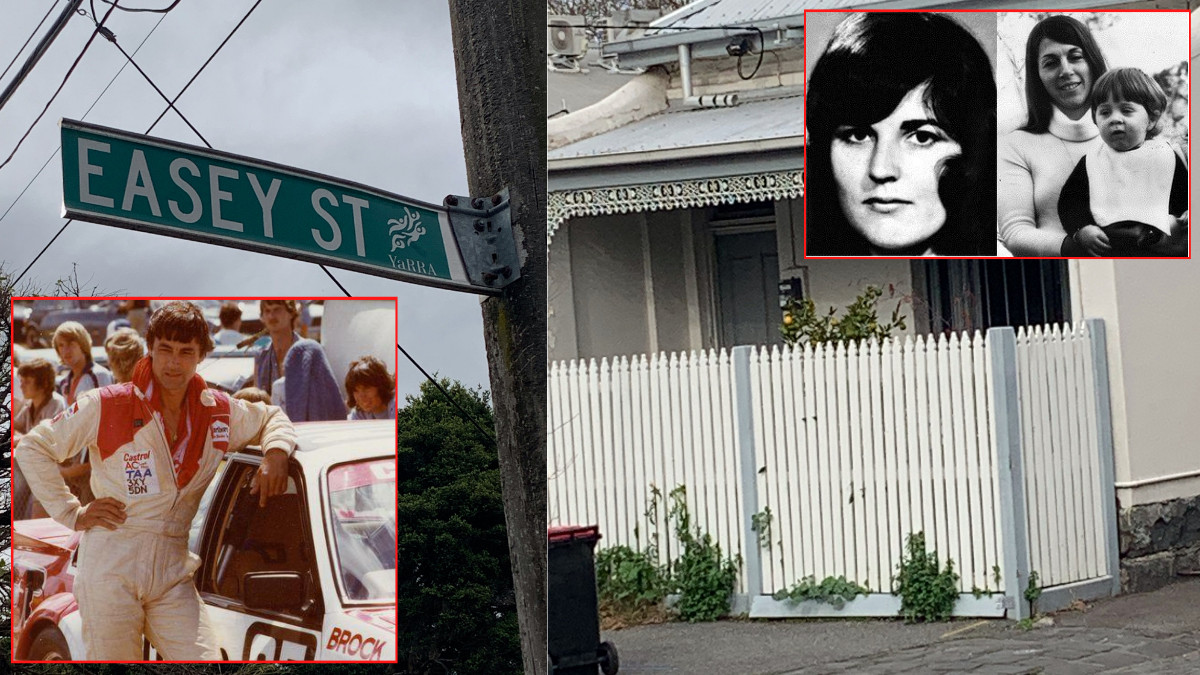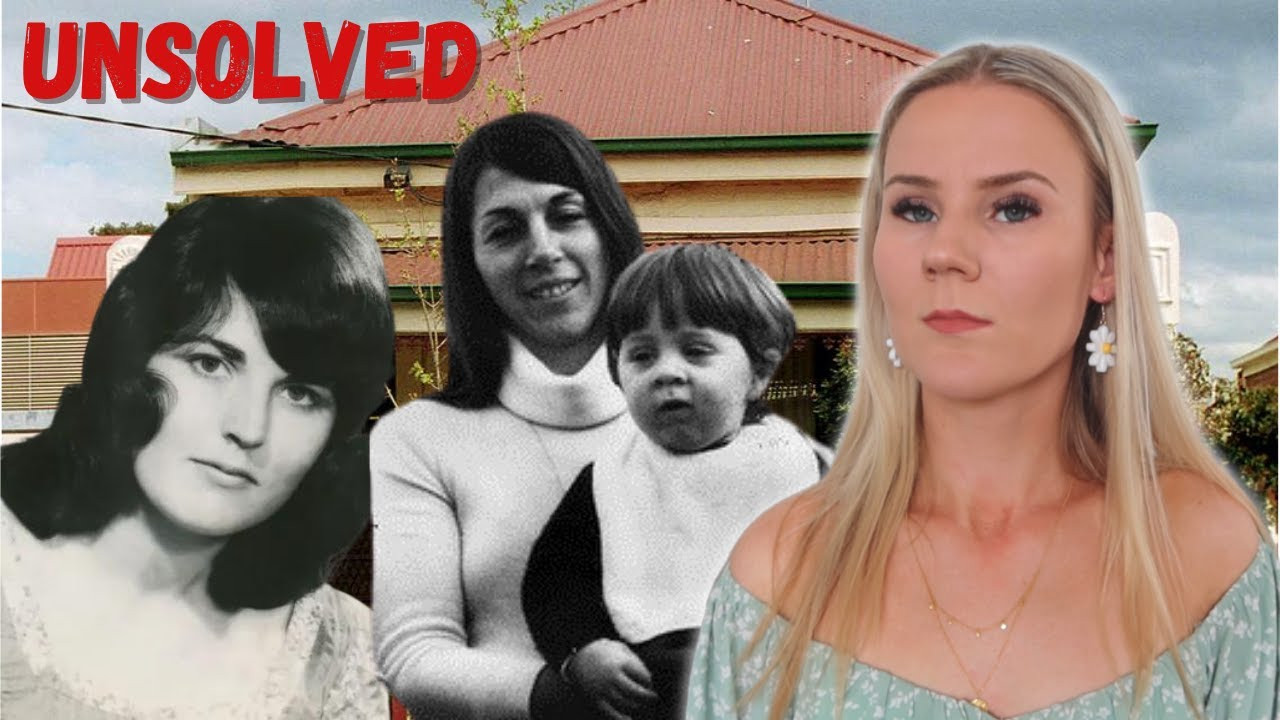A 65-year-old man has been arrested at an airport in Rome over the alleged murder of two women in the Melbourne suburb of Collingwood in 1977. It's a major development in a case that has frustrated Homicide Squad detectives for almost 50 years.
On Thursday night, a major development came in the cold case when a 65-year-old suspect was arrested at an airport in Rome. It follows a decades-long investigation by Victoria Police's Homicide Squad, following the alleged murders of housemates Suzanne Armstrong, 27, and Susan Bartlett, 28, who were found dead at their home in Easey Street, Collingwood on January 13, 1977.
Both women, who were high school friends from Benalla, had last been seen alive on the evening of January 10. They had been stabbed multiple times. Police said Ms Armstrong was sexually assaulted and stabbed, while it is believed Ms Bartlett was stabbed after she heard the disturbance and went to the aid of her friend.
However, Ms Armstrong's 16-month-old son Gregory was left unharmed in his cot, where he remained alone for days.
In a statement released on Saturday afternoon, the Armstrong and Bartlett families said "the gravity of the circumstances surrounding their deaths changed our lives irrevocably".
"For two quiet families from country Victoria it has always been impossible to comprehend the needless and violent manner in which Suzanne and Susan died."
The man arrested was a dual citizen of Australia and Greece. He remains in custody, with Victoria Police working to seek his extradition to Victoria.
Police Chief Commissioner Shane Patton said Thursday night's arrest at the airport in Rome was a significant development in Victoria's "most serious" and longest cold case. He said the 65-year-old was arrested on an Interpol red notice warrant.
Mr Patton said police intend to charge the man with two counts of murder and one charge of rape after being a suspect for a number of years. The man was 17 at the time of the Easey Street killings. He remains in custody, and police and the Federal Attorney General's office will work with authorities in Italy to seek his extradition to Australia.
Mr Patton said the Easey Street murders struck at the heart of the community. Mr Patton said the Easey Street case had always remained a priority for police.
"It was an absolutely gruesome, horrific, frenzied homicide," Mr Patton alleged. "This is Victoria's most serious cold case and longest cold case." "Two women who should have been safe in their own home were brutally murdered," he alleged.
Mr Patton paid tribute to the resilience of the Armstrong and Bartlett families. "They've grieved for over nearly five decades, waiting for answers. They've missed them, they continue to miss them."
He said the families were notified of the arrest this morning by the detective senior sergeant who has been in charge of the investigation since 2015. "He made a promise to them, he said 'when there's a breakthrough, I will tell you personally'. He and his crew went up to country Victoria this morning where they broke that news to them."
Mr Patton said the investigator described the families as being emotional, speechless and overwhelmed by the news.
The families said they would be forever grateful for the support and understanding shown by friends and family over the past 47 years. "It is difficult to sufficiently express our appreciation to Victoria Police and the many investigators who have tirelessly pursued answers and justice for us over such a long period of time," they said. "The perseverance and dedication required to achieve the result today is something to truly behold. For always giving us hope and never giving up, we simply say, thank you."
Victorian government frontbencher Ingrid Stitt said her thoughts were with the families. "This has been something that has haunted the Melbourne community for many decades," she said. "I think the best thing for all of us to do is to let the police continue with their investigations and their case."
In January 2017, police announced a $1 million reward for information leading to the arrest and conviction of anyone found to be responsible for the alleged murders. At the time, police noted they had about 130 persons of interest who they were ruling out one by one — starting with those who were still alive.
"The Easey Street murders, as they came to be known, have always been a priority for Victoria Police and an enormous amount of work has been done by many, many people to bring us to the position we are in today," Chief Commissioner Patton said on Saturday. "As well as the Homicide Squad, this includes a large number of police and staff from a range of specialist areas across the organisation. All have been wholly committed to finding answers and holding those responsible for these deaths to account.
"This was a crime that struck at the heart of our community — two women in their own home, where they should have felt their safest."
Chief Commissioner Patton said while there was still some way to go, the arrest was a crucial breakthrough. Chief Commissioner Patton said he wanted to recognise the "enduring resilience" of both the Armstrong and Bartlett families. "No doubt this will be a very emotional time for them," he said. "I hope this arrest brings you closer to the answers you so richly deserve and have waited so long for."
Ms Armstrong's sister, Gayle, raised Gregory after his mother was killed. Speaking in 2017, she said it was his cries that alerted the neighbours to trouble. "He was in the cot for two days before they found him, and it was only because of his crying that the next-door neighbour found them when they did," she said. "I was his mum and in recent years he has found his own father and he visits them regularly and has got quite close to them, so he's going OK."
During that press conference seven years ago, Gayle Armstrong became emotional when asked what it meant to her that police were still actively involved in trying to find the killer. "It's something that has to be finalised and this reward should have been offered 39 years ago and it'd be solved and we wouldn't be doing all this now."
She had not lost hope that there would be a breakthrough. "I hear the miracles that [police] do solve [cases] and I think Suzanne will be next," she said.
Mr Patton could not provide a timeline on when the arrested man would be extradited to Australia. He said it would be at least a month before investigators travelled to Rome. Mr Patton said the man had been a suspect for a number of years but police could not arrest him while he was in Greece.
He said that's because a deadline on the time to initiate an arrest warrant on murder charges had passed, so detectives had to wait until he was outside that country. "If anyone believes or believed that cold cases are simply put on the backburner, they're put on a shelf, allowed to gather dust, I think this is testament to the fact we don't forget these matters," he said. "There is simply no expiry date on crimes that are as brutal as this."
Mr Patton said the arrest was not the end of the investigation and he continued to urge anyone with information to contact Crime Stoppers on 1800 333 000 or make a confidential report online at www.crimestoppersvic.com.au.


















